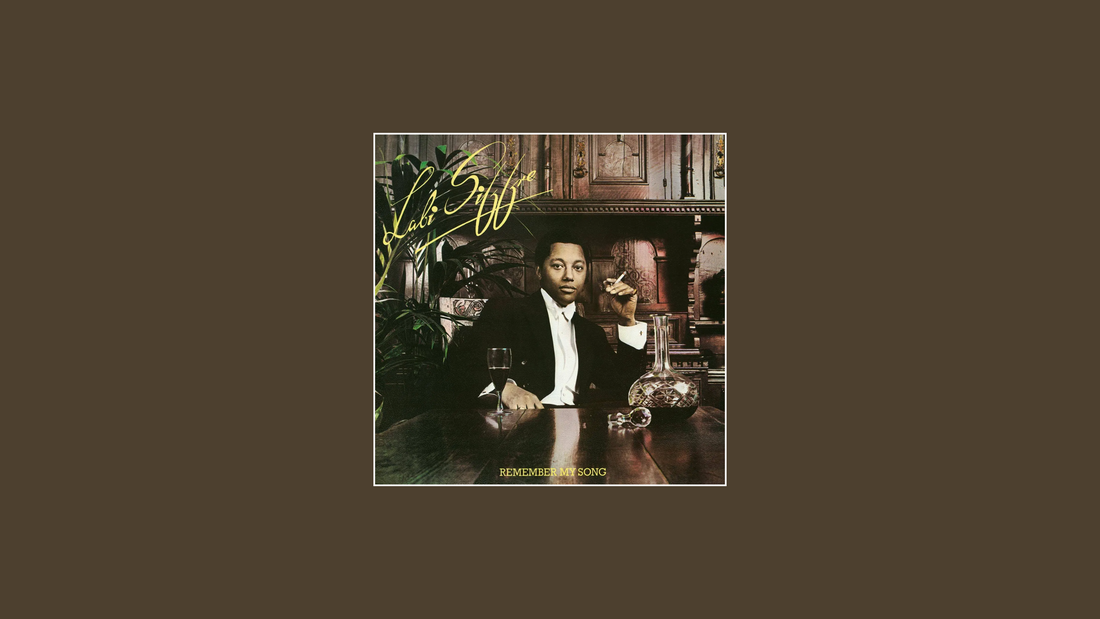
Labi Siffre – Remember My Song (1975)
A soulful record of resilience and groove that found eternal life through hip hop.
By Rafi Mercer
There are albums that appear modest in their own time but later reveal themselves as keystones. Remember My Song, released in 1975, is one of them. At first glance it was simply another entry in Labi Siffre’s catalogue — the work of a British singer-songwriter with a gentle voice and a gift for blending folk, soul, and jazz. But hidden inside was a groove that would one day underpin one of hip hop’s defining tracks, and beyond that, a set of songs that glow with humanity, conviction, and musical craftsmanship.
Labi Siffre was never just a soul singer. Born in London to a Barbadian father and Belgian mother, he brought a wide-open sensibility to his writing. Folk ballads, gospel refrains, jazz-inflected arrangements — his records were never confined by category. Remember My Song may be his funkiest album, but it is also shot through with tenderness. This was a record made not to chase trends but to capture a mood, a way of being in the mid-1970s that carried both introspection and uplift.
The track most listeners know — even if they don’t know they know it — is “I Got The…” The first half of the song is almost plaintive, Siffre’s voice hovering over a melancholy progression. Then comes the instrumental break: a deep, swaggering groove built from electric piano, guitar, bass, and drums, locked so tight it feels like a machine given soul. That break would later be sampled by Dr. Dre for Eminem’s “My Name Is,” giving Siffre’s tune a second life across a completely different musical landscape. But in its original form, it’s more than a beat — it’s a moment of pure ensemble chemistry, the band stretching into something that feels inevitable.
Yet to reduce Remember My Song to a sample source would be a mistake. The album brims with variety. “Another Year” is lush and cinematic, strings lifting Siffre’s voice into widescreen. “Dream Away” shows his lyrical gift, words tumbling with both optimism and ache. “Old Time Song” carries gospel fire, handclaps and harmonies circling like a congregation. And then there is “Make It Go Away,” a ballad that feels as intimate as a whispered confession, Siffre’s voice plain and unguarded.
What ties it all together is his tone. Unlike many singers of his era, Siffre never pushed to impress. His delivery is conversational, almost fragile, and that vulnerability becomes his strength. It allows the funkier cuts to feel grounded, the lush arrangements to feel human. On vinyl, this balance comes alive. The grooves are fat but never bloated, the strings warm but not saccharine, the voice close and real. Play it on a good system and you hear the detail — the fingers sliding on strings, the air between the horns, the grain in his vocal.
In a listening bar, Remember My Song plays differently depending on context. Drop “I Got The…” and you have a groove that connects instantly with anyone who’s absorbed hip hop in the past twenty years. Put on “Dream Away” or “Make It Go Away” and you create a hush, the room folding into Siffre’s intimacy. It’s an album that gives selectors flexibility: it can be atmosphere, it can be revelation, it can be both in the same evening.
Siffre himself deserves recognition beyond the music. Openly gay at a time when few artists dared to be, outspoken on issues of race and justice, he carried his convictions into his art with quiet force. That makes Remember My Song not just a collection of grooves but a statement of being — resilience through melody, integrity through groove.
The legacy of the album has only grown. Reissued multiple times, it has found new generations of listeners drawn first by the famous sample and then held by the depth of the songs. DJs dig for it not just because it sounds good but because it feels right, a record that seems to expand in meaning the more you return to it.
Why does it belong in the Tracks & Tales listening shelf? Because it is both a hidden gem and a cornerstone. Because it shows how a record can live multiple lives — as a 1970s soul statement, as a hip hop backbone, as a rediscovered classic. Because it demonstrates that deep listening isn’t about genre hierarchy but about honesty, groove, and the spaces music creates.
Drop the needle on Remember My Song and you’re not just revisiting 1975. You’re stepping into a continuum — folk, soul, jazz, hip hop, all colliding in one voice. It is a record that proves intimacy can be just as powerful as volume, that resilience can groove as much as it aches, and that sometimes the songs we almost forget turn out to be the ones we most need to remember.
Rafi Mercer writes about the spaces where music matters. For more stories from Tracks & Tales, subscribe, or click here to read more.







